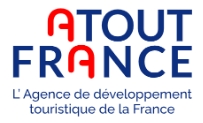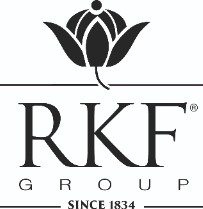
Swiss Education Group schools ranked in the Top 10 international hospitality schools favoured by international industry recruiters. (Suisse)
|
 |
Swiss Education Group schools ranked in the Top 10 international hospitality schools favoured by international industry recruiters. (Suisse)
|
Catégorie : Europe - Suisse - Expériences exclusives
- Récompenses, remises de prix, concours
Ceci est un communiqué de presse sélectionné par notre comité éditorial et mis en ligne gratuitement le 21-10-2011
With four schools ranked in the Top 10, the international hospitality industry has clearly indicated the value it places in graduates from schools within the Swiss Education Group (SEG). The ranking exercise conducted by the independent market research company GfK Switzerland has produced a result that makes SEG schools proud of their excellent work in the pursuit of satisfying and exceeding the needs of the international hospitality industry. With more than 25 years of experience in the field of education and a proven track record of success, SEG demonstrates dynamism and commitment to the industry.
Results indicate that worldwide hotels use an SEG school as most preferred supplier for new employees.
One of the key findings of this survey is that 46% of the respondents currently use at least one of the SEG schools for their recruitment, which means that almost half of the worldwide hotel managers in charge of recruiting rely on graduates from an SEG school. A key survey question: "Which of the following schools do you currently use/work with for recruitment in your company?” placed the four SEG schools in the Top 10: in second place, Swiss Hotel Management School; in fourth place, Cesar Ritz Colleges; in sixth place, Hotel Institute Montreux; and in eighth place, IHTTI, School of Hotel Management.
The study also shows that over 40% of the international hotels in the survey use an SEG school as their most preferred supplier, which is equal to all the other Swiss schools combined. Interestingly, the Top 10 featured almost only Swiss schools although the survey included schools from other countries, which shows the leading position and high recognition of Swiss hospitality education amongst worldwide industry leaders.
After 25 years of preparing students to meet the best standards of Swiss hospitality management, the survey confirms that SEG students are very flexible and able to be immediately involved in the daily business of their employers. This is the result of SEG’s development strategy. “Since 2008, SEG focused its efforts on strengthening its links with the industry by fostering the employability of its students and alumni, and facilitating the recruitment process of its partners, explains Benoit Samson, SEG Executive Director of Business Development. In this process SEG created its very successful International Recruitment Forum which brings together more than 50 international industry leaders twice a year in Montreux to recruit their new talents.”
Enthused by this recognition from professionals within the international luxury hotel industry, SEG has set itself the objective of steadily improving its standards of excellence and placing its schools in the Top 5 in the coming years.
Top 10 international hotel schools favoured for use by the International hospitality industry
1. Ecole Hôtelière de Lausanne
2. Swiss Hotel Management School
3. Les Roches International School of Hotel Management
4. Cesar Ritz Colleges Switzerland
4. Glion Institute of Higher Education
6. Hotel Institute Montreux
7. Ecole Hôtelière de Genève
8. IHTTI School of Hotel Management in Neuchâtel
9. The Hague Hotel School International University of Hospitality Management The Hague
10. Zurich Belvoir Park
GfK Switzerland july 2011
A survey focusing on robust interviews of international hospitality top recruiters
The GfK group is active in some 100 countries around the globe and is one of the world’s leading market research companies. GfK Switzerland S.A. (part of the GfK group) conducted a survey from June to July 2011, designed to evaluate from which international hotel schools the industry preferably sources its new talents. The study collated the responses from interviews with 80 managers in charge of human resources from 25 major geographic markets within the luxury hotel industry.
With the aim of providing a specific analysis of the market, the study set out to identify expectations and perceptions of those key players within the industry with regards to the relevance of the academic content delivered at the individual hotel schools, as well as the resulting employability of their graduating students. Each questionnaire consisted of 24 questions, and was conducted in interview form with an average of more than 20 minutes per interview.
|
|






